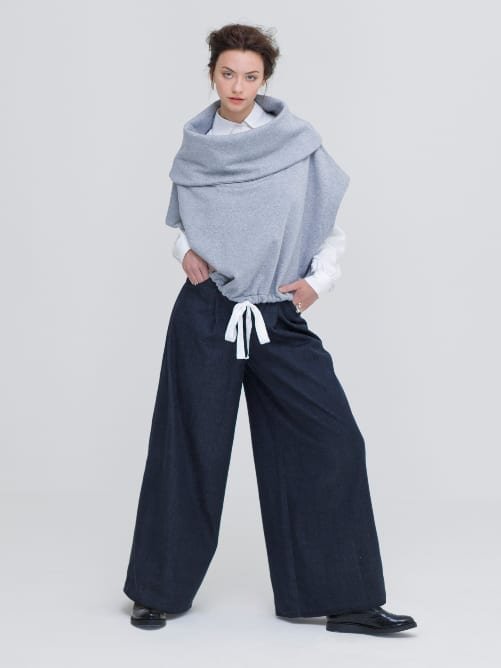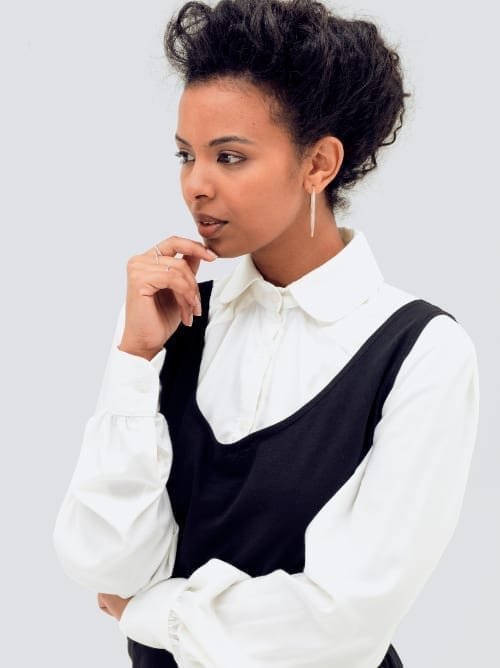This article first appeared in our autumn ’18 issue of MyGreenPod Magazine, The Consumer Revolution, distributed with the Guardian on 16 Nov 2018. Click here to subscribe to our digital edition and get each issue delivered straight to your inbox
Emily Evans spent years working internationally as a designer for Jimmy Choo, Mimco and Merchant 1948. The first time she landed in China, she saw for herself what mass production is doing to the environment. ‘I remember gazing out the window of the plane and thinking to myself wow, what a misty morning! I wonder when it will clear’, she says. ‘It was upon my arrival in Dongguan that I realised the mist wasn’t going to clear at all – and that it was in fact pollution.’
Emily continued to work in fashion, but something had started to gnaw away internally. She experienced the industry at all levels – from high street to high end – and was horrified by the impact fast fashion was having on our planet.
During one trip to a factory in the far east to source materials, Emily saw towering heaps of off-cuts from the recent production run. ‘Rubber, PU, foam, expanded polystyrene, leather, polyester, insole board, outsole board… You name it, it was there’, she remembers.
These were just a few of the many discarded mountains of waste Emily encountered during her travels for work. They were a small part of the staggering 12 million tonnes of textile waste sent to landfill each year. ‘Sadly, this is only a fraction of the bigger picture’, Emily says. ‘What about the whopping one million tonnes of textile waste thrown away by us, the consumer, each year? Or the amount of water polluted by toxic chemicals and dyes that are used during textile production? 20% of global industrial pollution comes from the dyeing and production of textiles each year. And what about the billions of people exploited in the process of making fast and cheap fashion?’
Something in Emily shifted, and she started thinking about her purpose in fashion. ‘If I’m honest, I didn’t get much sleep for a really long time’, she says. ‘I knew fashion was where I was meant to be, but I wasn’t going to pursue it at the cost of the Earth.
It started with a black T-shirt
Emily started to do some research; she watched documentaries and read up on the many issues surrounding the fashion industry. She tried to source sustainable clothes for herself, but was shocked when she couldn’t find a simple, sustainably made black T-shirt anywhere.
‘I soon realised there weren’t many ethical options out there offering the core essentials every wardrobe is built around’, Emily says. ‘Something clicked into place, and I felt this was a frustration many women were dealing with.’
In March 2016 Emily decided to create Zola Amour, a sustainable fashion company based in Brighton. The goal was to address fashion’s impact on the environment and minimise its effect on climate change, while at the same time supplying a growing demand for beautiful, functional clothing that ‘combines both comfort and confidence’.
Keeping a really low carbon footprint and paying staff a living wage are also high on the agenda for Emily; each item of clothing is handmade ethically and fairly in the company’s UK production unit.
 Play Video about This Rock Might Just Save The World
Play Video about This Rock Might Just Save The World Play Video about Play 2 hours of rock
Play Video about Play 2 hours of rock Play Video about Play 2 hours of brook
Play Video about Play 2 hours of brook Play Video about Play 2 hours of sheep
Play Video about Play 2 hours of sheep













































